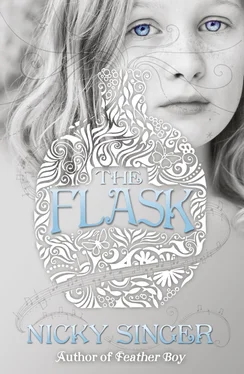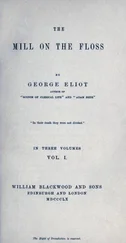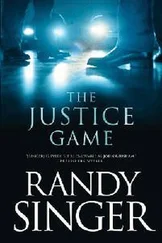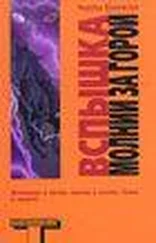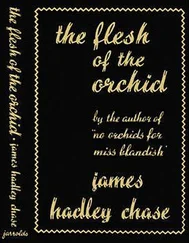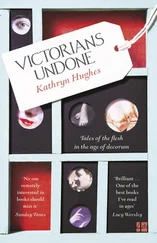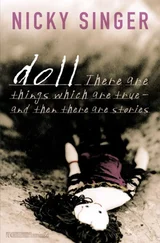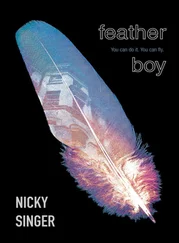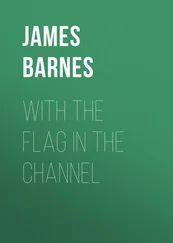Gran talks to me quite often about my father, although only when we are alone. Normally it makes me uncomfortable, not because I’m not interested, but because she always seems to require a response from me and I’m never quite sure what that response should be. And the more she looks at me, the more she wants, the less I seem to be able to give. Though I think she believes that, if she talks about him enough, I’ll remember him. It will unlock memories of my own. But I was only nine months old when he died and I remember nothing.
But the slide rule is different. It’s the first thing I’ve ever held in my hands that he held in his.
“It’s not useless,” I say. “I like it. Thank you.”
And all the roughness falls away from her.
I’m thinking all this as I select a drawer for my father’s ivory slide rule. Right or left? I choose the right, slip it in. Then I change my mind.
I just change my mind.
I open the left drawer and transfer the slide rule. But it won’t go, it won’t fit. I push at it, feel the weight of its resistance. I push harder, the drawers are an equal pair, so what fits in one has to fit in the other.
Only it doesn’t.
I pull out the right-hand drawer. It runs the full depth of the desk, plenty long enough for the slide rule. I pull out the left-hand drawer. It is less than half the length of its twin. Yet it isn’t broken. It is as perfectly formed as on the day it was made.
Which is when I put my hand into the dark, secret space that lies behind that drawer.
And find the flask.
My heart gives a little thump. I’ve no idea, this first time, what I’m touching, except that it is cold and rounded and about the size of my hand. As I draw it out into the light, I feel how neatly its hard, shallow curves fit into my palm.
I call it a flask, but perhaps it is really a bottle, a flattish, rounded glass bottle with a cork in. It is very plain, very ordinary and yet it is like nothing I’ve ever seen before. The glass is clear – and not clear. There are bubbles in it, like seeds, or tiny silver fish, swimming. And the surface has strange whorls on it, like fingerprints or the shapes of contour lines on a map where there are mountains. I think I should be able to see inside, but I can’t quite, because the glass seems to shift and change depending on how the light falls on it: now milky as a pearl; now flashing a million iridescent colours.
I sit and gaze at it for a long while, turning it over and over in my hands, watching its restless colours and patterns. It is a beautiful thing. I wonder how it came into being, who made it? It can’t have been made by machine, it is too special, too individual. I remember the glassmaker who made my green cats and I imagine a similar man in a leather apron blowing life down a long tube into this glass, putting his own breath into it, lung to lung, pleased when the little vessel expanded. And then, as I keep on looking, the contours don’t look like contours any more but ribs, and the bowl of glass a tiny ribcage.
I have these thoughts because of the babies. Everything in the last nine months has been about the babies. They get into and under everything. They aren’t even born and they can make you frightened, they can make Mum cry, they can make me see things that aren’t there under shifting glass. Because, all of a sudden, I think I can see something beneath the surface of the glass after all.
Something and nothing.
I do make things up. Si says, “You are certainly not a scientist, Jessica. Scientists look at the evidence and then they come to a view.” But it’s not just Si, it’s Gran and even Mum. They say I make things up. I see things that aren’t there. And hear them sometimes too. Like now, beneath the glass, through the glass.
Some movement, a blink, a sigh. A song. Some sadness.
The sensation of life, of a ribcage, breathing.
“Jessica!” That’s a shout, a real-world shout. Gran is shouting. “Jessica, Jess!”
I jolt out of myself. “What?”
“The phone, Jess.”
Gran is standing at the bottom of the stairs, the phone in her hand.
It has come. The message. She knows. She knows about the babies.
I abandon everything, fly down the stairs, rip the phone from her.
“Yes?”
It is Si.
“Jess,” he says. “Jess.”
“Yes!”
“They’re alive. They’re alive, Jess.” His voice doesn’t sound like his normal voice, it sounds floating. I conjure his face. His eyes are full of stars.
I know I’m supposed to say something , but I don’t know what.
“Isn’t it wonderful?” says Gran.
“And they both have a heart,” says Si. “Two hearts, Jess. One heart each.”
Then I find something to say.
“Omphalopagus,” I say.

Omphalopagus is the technical term for babies joined at the lower chest. These type of babies never share a heart, so I don’t know why Si is so surprised. After all, it was Si who did the research, hours and hours of it on the net. Si who taught me the word, made me pronounce it back to him. Omphalo – umbilicus. Pagus – fastened, fixed. Fixed at the navel. The twins umbilically joined to each other and to Mum and right back through history to the Greeks who coined the word in the first place.
Me and the joins.
Si and the statistics.
Si’s endless statistics. Seventy per cent of conjoined twins are girls. Thirty-nine per cent are stillborn. Thirty-four per cent don’t make it through the first day of life.
Si’s eyes, shining.
“Can you give me back to Gran now, Jess,” says Si.
As I hand over the phone, I remember the night of Mum’s nineteen-week scan. I’d come down for a raid on the cereal cupboard. Si and Mum were talking in the sitting room, hushed, serious talk.
“They’re gifts of God,” I heard Mum say.
I stood at the door of the kitchen waiting for Si to put Mum right about that. I waited for him to tell Mum what he’d told me earlier that afternoon that, despite a great deal of mystical mumbo jumbo talked about conjoined twins down the ages, they are actually just biological lapses, slips of nature. Embryos that begin to divide into identical twins, but never complete the process, or split embryos that somehow fuse back together again. A small error, a malfunction, nothing to be surprised about, considering the cellular complexity of a human being.
I wait for him to say this. But he doesn’t.
“They’re miracles,” Mum says. “Our miracles. And I don’t care what anyone says. They’re here to stay.”
And Si doesn’t go on to mention the thirty-nine per cent of conjoined twins who don’t make it through the birth canal, or the thirty-four per cent who die on day one.
He just takes her in his arms and lets her bury her head in his chest. I see them joined there. Head to chest.

I’ve only been gone from my bedroom a matter of minutes, but it feels like a lifetime. Even the room doesn’t look the way it did before. It’s bigger, brighter, there is sunlight splashing through the window.
“The babies,” I shout. “They’re alive!” I jump on the bed and throw myself into a wild version of a tribal dance Zoe once taught me. Then I catch sight of myself in the mirror and stop. Immediately.
I also see, in the mirror, the flask. It has fallen over, it’s lying on its side on the desk.
No. No!
I scoot off the bed.
Please don’t be cracked, please don’t be broken.
The flask has only just entered my life and yet, I realise suddenly, I feel very powerfully about it. Connected, even. I find myself lurching forwards, grabbing for it. But it isn’t my beautiful, breathing flask, it is just a bottle. Something you might dig up in any old back garden. It isn’t broken, but it might just as well be, because the colours are gone and so are the patterns. No, that’s not true, there are whorls on the surface of the glass still, but they aren’t moving any more, and the bubbles, my little seed fish, they aren’t swimming. And there is nothing – nothing – inside.
Читать дальше
